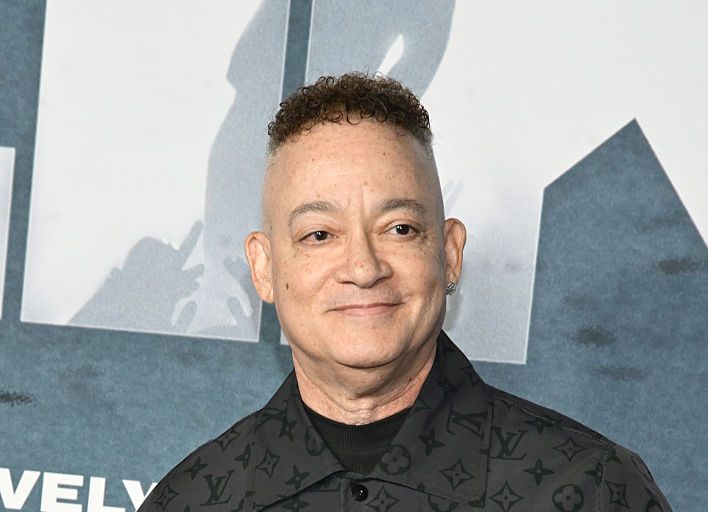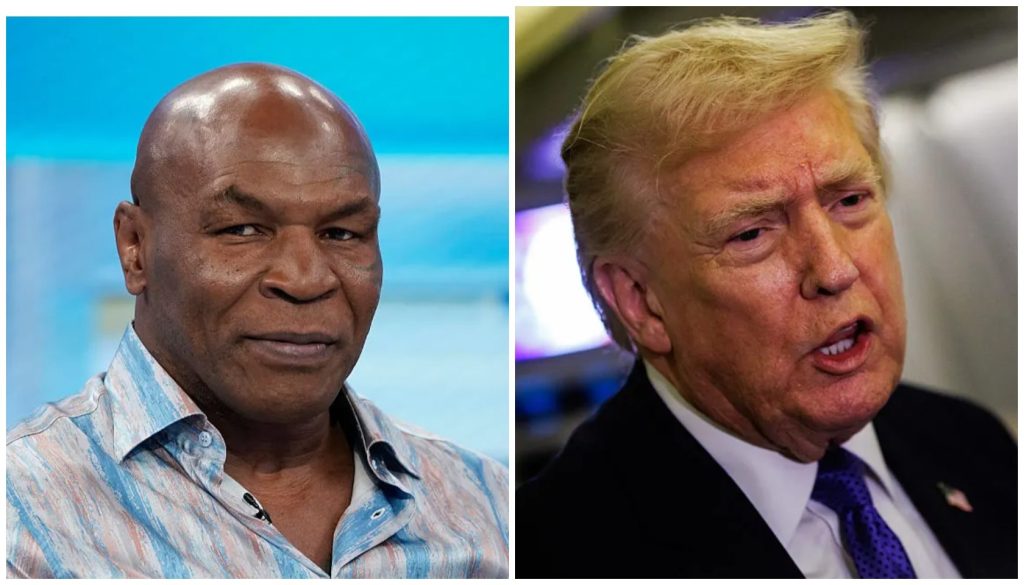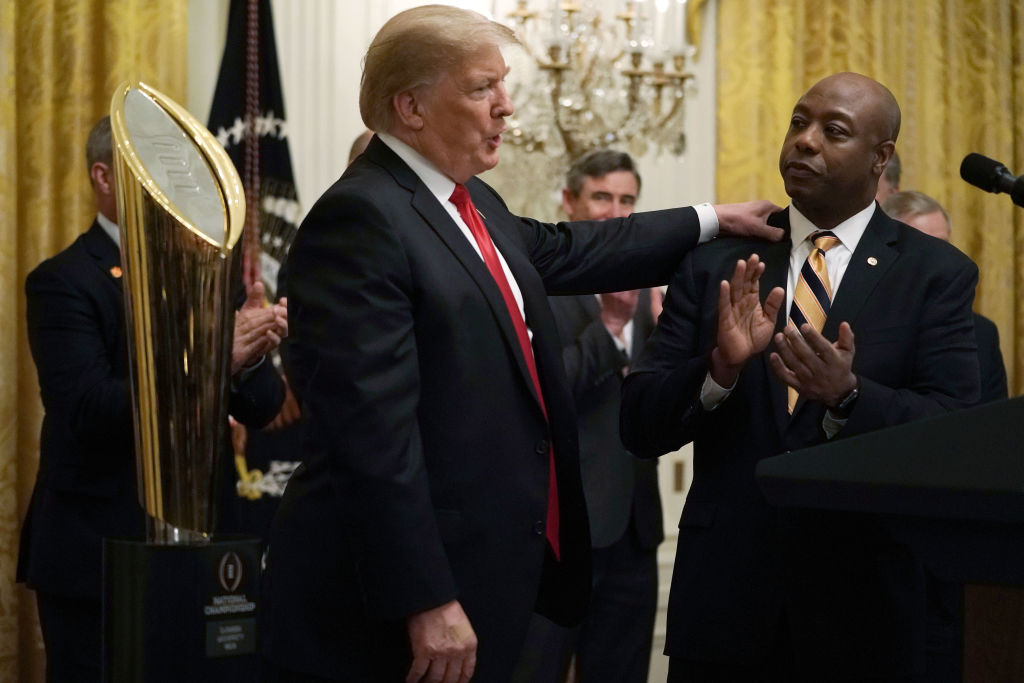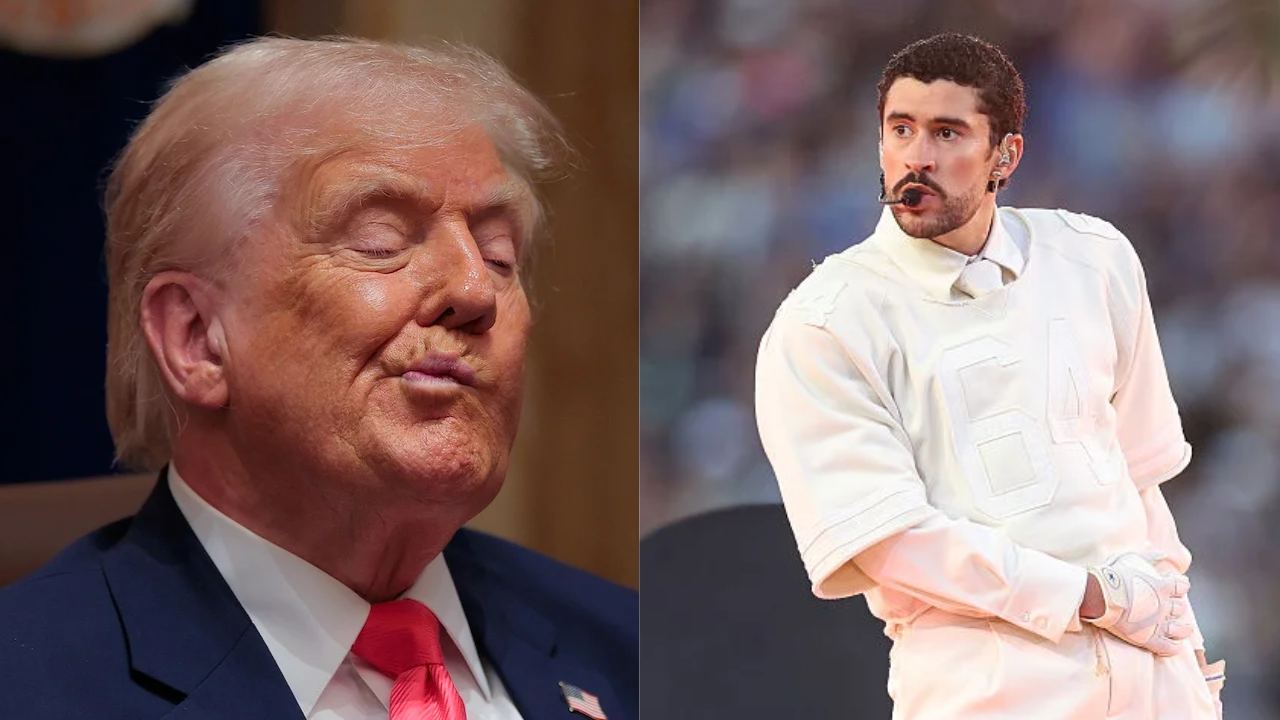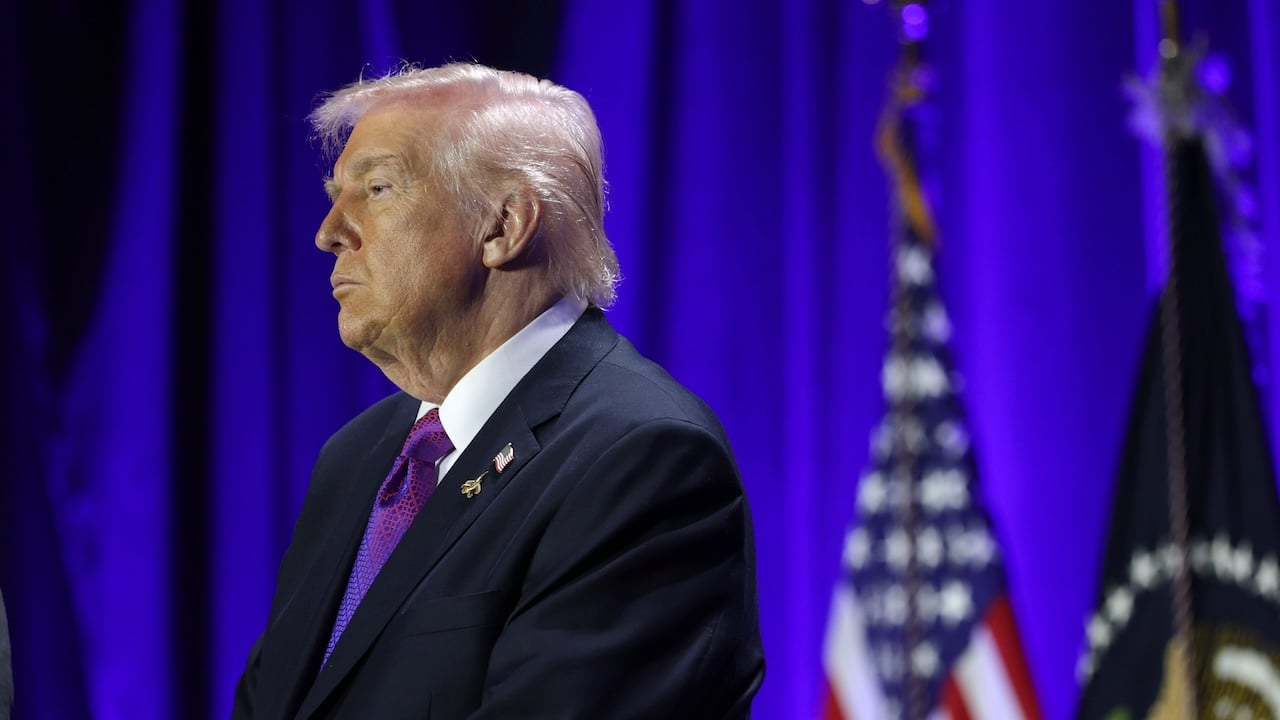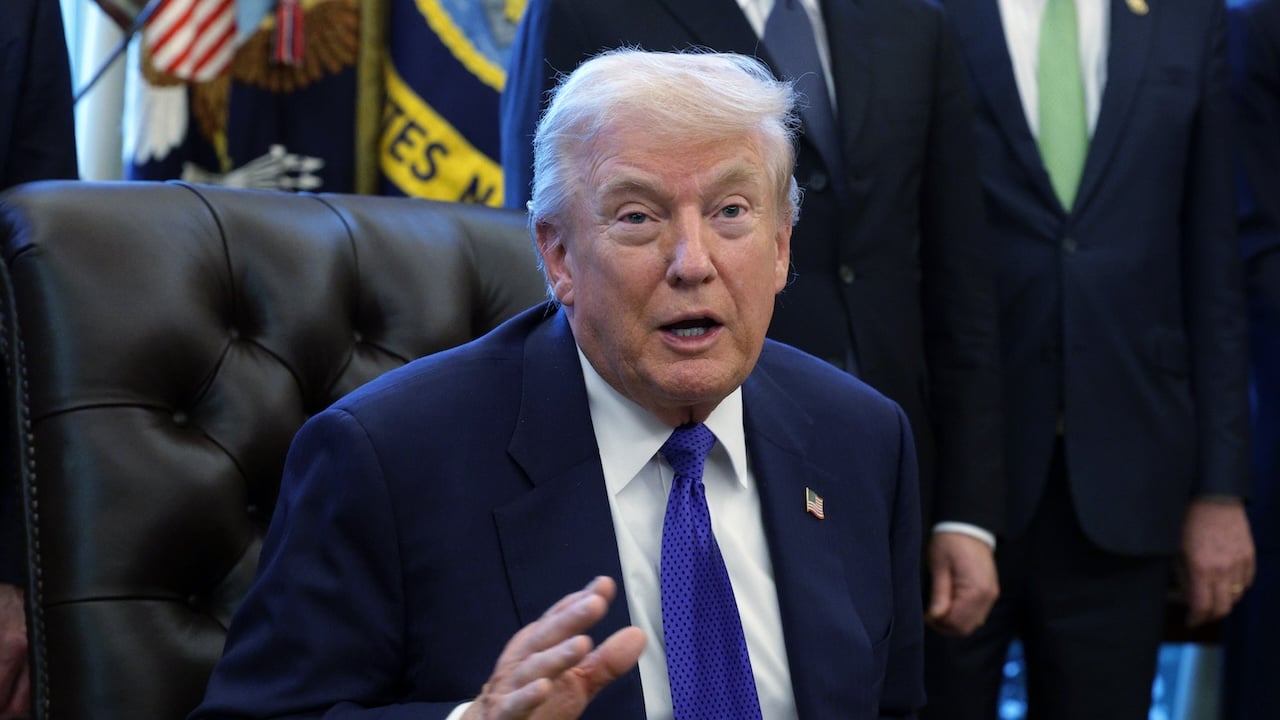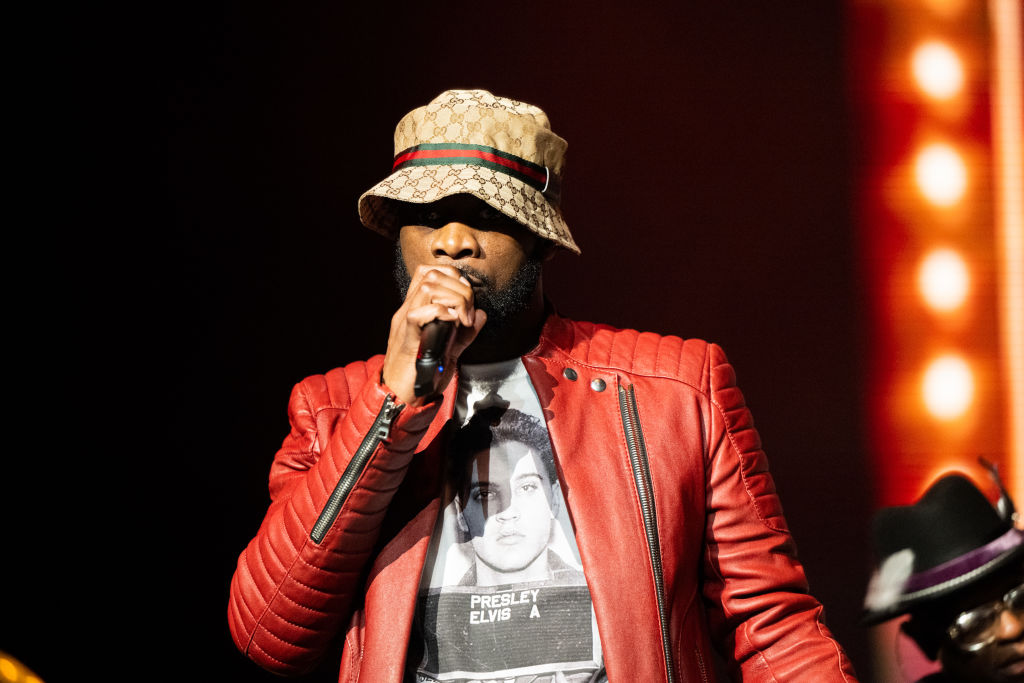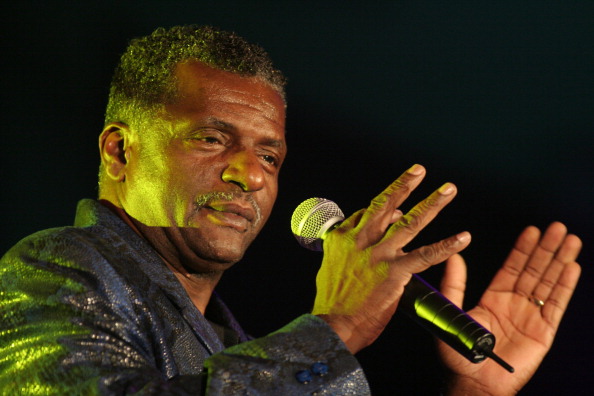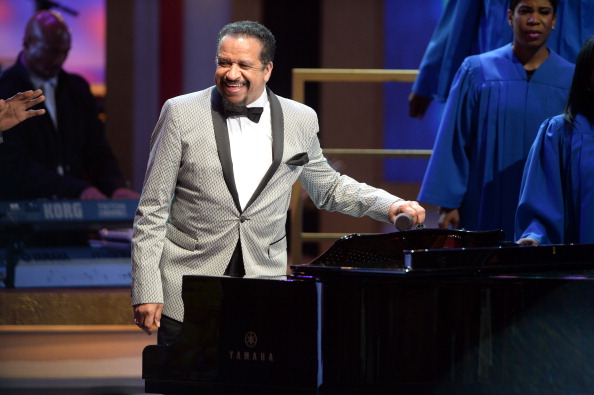From Green Flags To Red Alerts: What ‘Love Is Blind’ Taught Us About The Myth Of The Good Guy


If you’ve been online lately, you’ve seen the new dating gospel: Pick a good man. Stop chasing chaos. Stop ignoring the nice ones.
But what exactly does “good” mean? And who gets to decide?
Season 9 of Love Is Blind handed us a perfect case study.
Meet Edmond Harvey, 29, a realtor from Colorado with an easy smile, a master’s degree, and rollerblades he swears can outrun cars. A self-described Libra and “lot to handle,” he’s looking for someone who can match his energy without dimming it.
Then there’s Kalybriah “KB” Haskin, also 29, a Virgo and social worker who says she talks a lot but values men who actually listen. Her dream is a marriage grounded in growth and mutual care. She admits she often falls for potential and stays too long after seeing red flags.
When they met in the pods, it looked like balance. Edmond’s openness paired beautifully with KB’s warmth. They laughed, sang, and spoke the language of healing. For a moment, it felt like we were watching something sacred—Black love rooted in vulnerability, not survival.
But the truth of love is always revealed after the harmony.
The Foundation: Pain, Promise, and Performance
Edmond’s backstory tugged at the heart. He grew up in foster care and spoke candidly about wanting to build the family he never had. He cried easily, talked about therapy, and embodied the evolution many of us long to see in Black men.
That vulnerability drew people in, but it also revealed something else. Edmond knew how to express emotion, but not how to regulate it. He could name his pain but not navigate it. He wasn’t pretending to be sensitive; he just hadn’t learned that sensitivity without accountability can still cause harm.
The Pods: When Love Feels Safe
Kalybriah was steady from the start. As a social worker, she knows how to hold space for people in crisis. Her long-term dream is to open a nonprofit group home.
So when she met Edmond, a man still searching for stability, she naturally extended grace. Their pod conversations were filled with harmony and hope. They called each other King and Queen, and their connection felt rare.
But there’s a fine line between compassion and caretaking. What looked like alignment in the pods started to resemble emotional labor in the real world.
Mexico: When Niceness Meets a Boundary
Once the couple left the pods, Kalybriah reminded Edmond that she wanted to wait until marriage before having sex. He said he respected that choice.
Everything changed after a pool party where the other couples admitted to being intimate. That night, Edmond unraveled. He brought up Kalybriah’s past, throwing her one-night stands back at her, and asked why she’d give herself to men who “didn’t care” but not to him.
Kalybriah stayed calm. She reminded him her boundary wasn’t about rejection—it was about choice. Through tears, he shouted that he was “too f—ing nice.”
His pain was real, but so was the entitlement beneath it. In his mind, niceness should have been enough to earn access. That’s where the “good guy” story starts to fall apart. Niceness without self-awareness isn’t goodness—it’s negotiation.
Communication Breakdown: When Caring Turns Into Caretaking
Throughout the season, Edmond’s emotions filled every room. He cried often and apologized often, but little changed. Even his mother worried that he reacted more than he reflected.
Kalybriah, ever the empath, found herself absorbing his feelings while trying to keep her own intact. That dynamic—one person expressing and the other managing—isn’t love. It’s labor.
For many Black women, this pattern is painfully familiar. We’re told our job is to heal, to hold, to prove our devotion through endurance. But what happens when the act of loving someone else begins to erase you?
The Altar: Love Without Labor
Despite their struggles, Edmond and KB made it to the altar. He said yes. She said no.
Her decision wasn’t cruel—it was clarity. She loved him, but not enough to keep losing herself.
For many women watching, that moment hit deep. It was familiar. The bravery of saying “I can’t” in a world that keeps rewarding us for saying “I’ll try.”
Edmond’s tears were real, but so was her relief.
The Reunion: When Accountability Meets Interpretation
Months later, at the reunion, the tension resurfaced.
“He used his tears to manipulate the situation,” KB said.
Edmond pushed back. “I don’t want to manipulate anybody,” he replied. “Speaking from my heart is being taken as manipulation, and that makes me afraid to be open.”
Both were telling the truth from their own lens. But KB’s honesty reframed the conversation. Vulnerability without responsibility isn’t emotional safety—it’s emotional chaos.
They hugged for the cameras, but it wasn’t closure.
The Rebrand: Love and Language
After the show, Edmond went on podcasts to explain himself. He spoke calmly, using the language of therapy and peace.
“Your response is the most predominant thing,” he said. “You should always respond with love and gentleness.”
It sounded wise, and maybe it was, but it also reflected a pattern—eloquent reflection without visible growth.
We live in a time when everyone knows the vocabulary of healing, but not always the practice. Edmond’s words fit the era: polished on the surface, uncertain underneath.
Good Man vs. Good Guy
| Good Man | Good Guy (Performer) |
| Practices accountability | Performs vulnerability |
| Respects boundaries as love | Experiences boundaries as rejection |
| Seeks understanding | Seeks validation |
| Integrity is private | Goodness is public content |
| Grows quietly | Speaks loudly about growth |
Edmond isn’t a villain. He’s a mirror. His story forces us to examine how easily we confuse emotional expression with emotional maturity—and how vulnerability can slip into performance.
Kalybriah’s Lesson: The Cost of Empathy
We often talk about compassion as if it’s an action, but true compassion is quieter. It’s about bearing witness to what is, not fixing it.
Empathy, though, goes deeper. It asks us to see ourselves in someone else. That can create connection—and confusion.
Many viewers saw parts of themselves in Edmond. The tenderness. The unhealed places. The desire to be loved despite not being fully ready. Seeing ourselves in people who struggle can open the door to grace. But if that’s where we stop, it can become dangerous.
When we recognize ourselves in someone who is causing harm and choose silence, we mistake empathy for alignment. We tell ourselves we’re being patient or kind when, in truth, we’re allowing patterns that hurt everyone, including us.
Kalybriah’s choice was empathy at its most mature. She didn’t stop seeing Edmond’s humanity; she just refused to confuse understanding him with staying beside him.
That’s the lesson. Empathy should open the door to grace, not close the door on accountability.
Love Isn’t Blind for Everybody
“Love is blind” sounds poetic, but not everyone can afford that luxury.
For many of us—Black, queer, poor, or otherwise marginalized—love has never been something we could enter with our eyes closed. Our relationships exist within systems that were never built to nurture us.
From slavery, when our marriages were not recognized, to mass incarceration and economic inequity, Black love has always been political. It’s survival and softness intertwined.
When you come from people who had to fight to stay together, you learn that love is work. But that work should never feel like bondage.
Even in this so-called post–City Girl era, there’s still pressure on Black women to prove they’re “good” by forgiving endlessly, fixing everything, and staying through pain.
That’s why Kalybriah’s presence mattered. Casting a dark-skinned, ambitious, emotionally intelligent woman opposite a man still working through his trauma wasn’t just reality TV—it was a reflection of a deeper pattern. Black love on screen is often framed as struggle first, healing later.
Her boundary changed the narrative. Her “no” said that love can be work, but it should never feel like slavery.
Love as Survival Skill
We’re living in uncertain times. The economy is shaky, politics are hostile, and the community feels fragile. It’s natural to crave connection, to want comfort in another person. But love without strategy isn’t safety—it’s surrender.
Here’s what this season reminded us to look for:
1. How someone handles “no.”
Boundaries reveal truth faster than words.
2. Emotion versus empathy.
Crying doesn’t equal caring.
3. Consistency over charisma.
Goodness repeats itself quietly.
4. Discomfort as growth.
People who love you don’t run from accountability.
5. How they speak about others.
Compassion that disappears under pressure isn’t compassion.
6. Partnership, not rescue.
You can love someone’s healing, but you can’t do it for them.
Vision Beyond the Pods
It’s easy to joke about Love Is Blind—the montages, the glitter tears, the slow-motion heartbreaks. But this season offered more than memes.
Through Edmond’s fragility and KB’s clarity, we saw the full spectrum of modern Black love: tenderness, frustration, endurance, and liberation. Their story wasn’t about villains or heroes. It was about what happens when two people carry different definitions of care.
Love is sacred work, but it’s not servitude. Discernment is not cynicism. And choosing yourself doesn’t mean you’ve failed—it means you’ve finally learned to see.
We may not always have perfect vision in matters of the heart, but we can promise ourselves this:
We will not love blindly again.
Dominique Morgan, Sexual Health Expert, Adolescent Health Educator and Advocate, is an award-winning artist, philanthropist, and the Founder & CEO of Starks & Whitiker Consulting. Her work has been featured in Forbes, MTV, Essence, and more. Follow her on TikTok @thedominiquemorgan.
SEE ALSO:
When The Last North Star Sets: The Life And Legacy Of Miss Major Griffin-Gracy
What's Your Reaction?
 Like
0
Like
0
 Dislike
0
Dislike
0
 Love
0
Love
0
 Funny
0
Funny
0
 Angry
0
Angry
0
 Sad
0
Sad
0
 Wow
0
Wow
0






